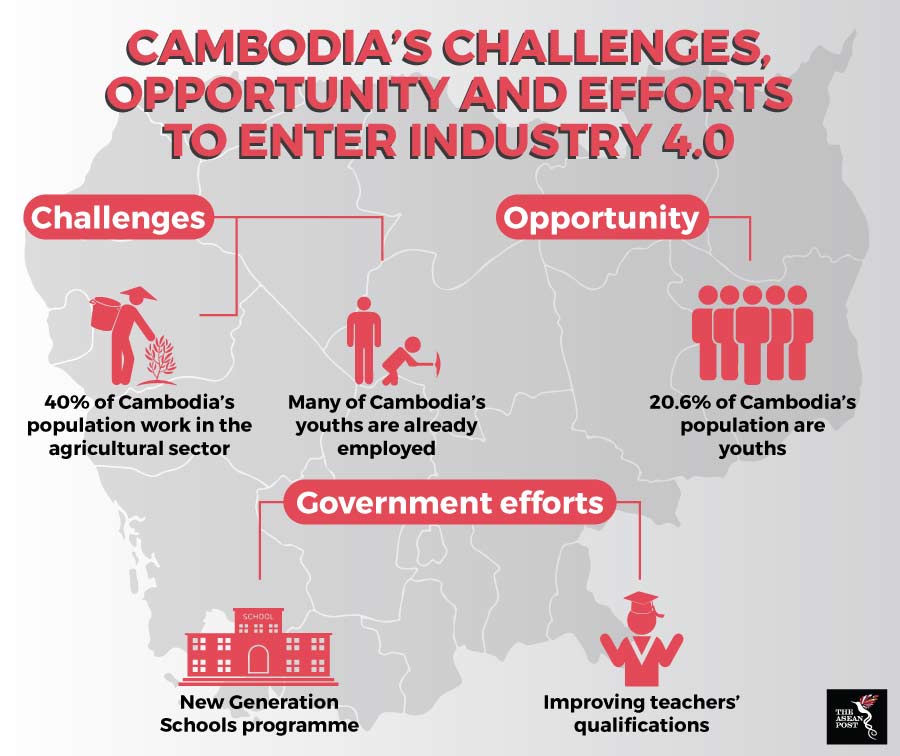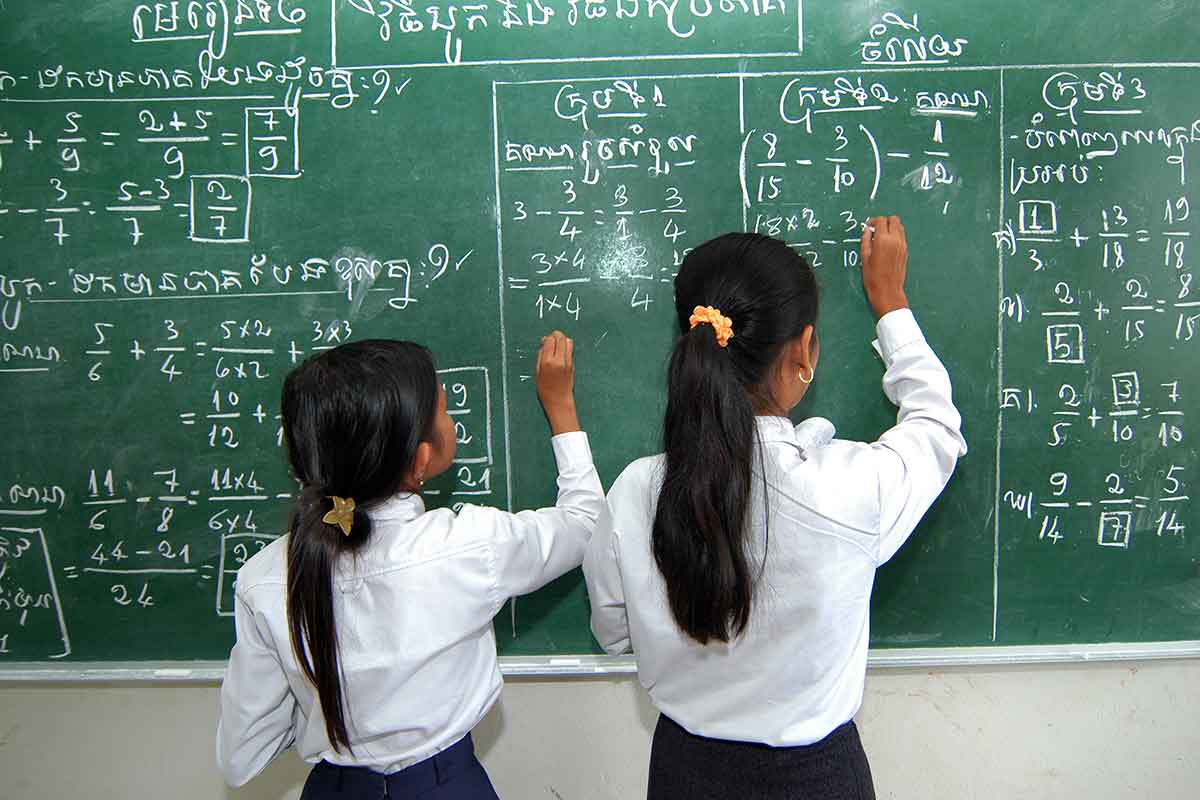It’s a given that while Industry 4.0 or the Fourth Industrial Revolution opens windows of opportunity for some countries, it provides challenges to others, forcing them to play catch-up. In Cambodia, people still rely heavily on agriculture for their livelihoods. A study by the Agriculture Ministry in June 2017 found that around 40 percent of the population there works in the agricultural sector.
This statistic points to a scenario where many Cambodians could potentially lose their jobs as the country starts to incorporate automation in its agriculture sector in its push toward embracing the Fourth Industrial Revolution. This is necessary if the country wishes to remain competitive in the region.
According to the United Nations Development Programme (UNDP), Industry 4.0 technologies provide an avenue for companies to cut costs. Failure to embrace Industry 4.0 could raise Cambodia’s cost of production compared to other countries.
The Cambodian government is faced with a conundrum: on the one hand, it must embrace Industry 4.0, but on the other, its dependence on cheap labour and low-skilled workers to stay competitive has left it at a disadvantage.
However, Cambodia has an ace up its sleeve: it is a country with a large population made up mostly of young people.
The United Nations Population Fund’s (UNFPA) latest statistics state that 20.6 percent of Cambodia’s population is made up of those aged between 15 to 24. UNDP Cambodia Country Director Nick Beresford said these youth are creative and entrepreneurial, keen and able to adapt and learn.
If Cambodia wants to be part of the Fourth Industrial Revolution, it must nurture its youth and help them become highly skilled workers. But this is easier said than done as many of the youth in Cambodia are already employed and may not have the opportunity to pursue these new skills.
According to the country’s Ministry of Planning, 74.5 percent of males aged between 15 to 24 are employed while the percentage is lower at 68 percent for females. Although these figures are from 2013 (the ministry’s latest findings), a December 2016 report by the Cambodian League for the Promotion and Defense of Human Rights (LICADHO) stated that child labour is still rife in the country.
Upgrading youth skills
Cambodia’s Minister of Education, Hang Chuon Naron said that the government’s New Generation Schools programme will soon be rolled out to 200 selected schools in all 25 provinces. The programme aims to promote the role of technology in schools by building well-equipped ICT labs and encouraging student-led learning by training teachers to apply innovative teaching methods.
Naron added that the government was making efforts to improve the level of qualifications held by teachers, saying that most still enter the profession without a university education – and some without even having completed high school.
“Right now, we have primary school teachers that are 12+2. It means they passed Grade 12 and had two years of training to become a primary school teacher,” he was quoted as saying. “Starting from 2020, our objective is to raise the minimum requirement of teachers from 12+2 to 12+4, or to a bachelor’s degree. Our focus will be on new recruits; they will have to meet these standards. For the existing ones, we will encourage them to take a fast-track programme to add another two years.”

Source: Various sources
The bright side for farmers
Cambodian farmers, however, are not allowing themselves to be left behind. International non-profit organisation Oxfam International set up the Blockchain for Livelihoods from Organic Cambodian Rice (Blocrice) which kicked off a pilot project for this year's harvest with 50 organic rice farmers onboard. Oxfam plans to expand the program across the entire country.
The aim of Blocrice is to promote contract farming between farmers' cooperatives and exporters, rice cracker makers and other buyers. Contracts predefine the primary purchase price, trade volume, transportation method and other conditions. These are then digitised and registered on a blockchain platform where trading and payment records can be updated securely.
Cambodia’s future lies in providing better opportunities for its youth as they adapt to meet the challenges of the Fourth Industrial Revolution.
Related articles:
Can Industry 4.0 change Southeast Asia's manufacturing?
